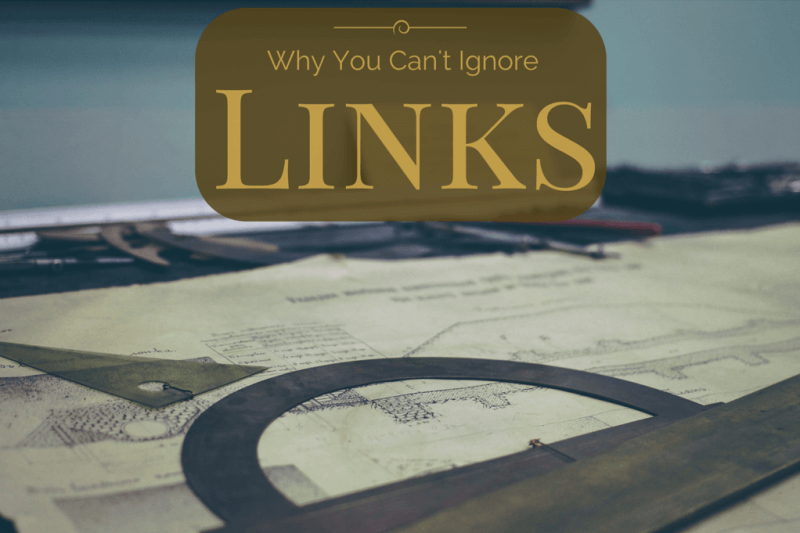

If you care at all about the online visibility of your business or brand, you cannot disregard links.
There seems to be a common misconception floating around the digital marketing sphere that you don’t need to worry about links, and instead you can just “produce great content” or focus only on “doing good PR and marketing,” and the links will somehow come through magic.
Strategies such as content marketing and public relations have their own merits and goals, but they are different from link acquisition. And no matter how great your content marketing, PR or other digital tactics are, links can’t be ignored. Links are too important — and if you don’t strategically and manually pursue them, you’re leaving valuable opportunities on the table.
Links are valuable online for a number of reasons, including:
- Visibility in search
- Visibility on industry-specific sites
- Directing qualified traffic
- Building brand awareness and reputation
- Establishing meaningful connections and relationships
If you forgo strategic link acquisition and analysis, you’re forgoing many of these benefits.
If you’ve been ignoring links, the place to start is your own site.
The Importance Of Internal Linking Structure
Before pursuing any type of external link earning strategies, it’s important to ensure the internal linking structure on your own site is in check. Internal links help you get the most out of the external links you acquire.
Internal links offer SEO benefits, and they optimize your user experience. If you’ve worked hard to create compelling content, make sure that your readers can find it easily through internal links. Without proper linking, your best content and pages can quickly become buried on your site.
To learn more about optimal internal linking strategies, I recommend reading Erin Everhart’s post here on Search Engine Land.
Once you have your internal links in order, it’s time to direct your focus to link acquisition.
Concrete Examples for Active Link Acquisition
Optimizing your internal link structure will maximize the efficacy of any external backlinks you obtain. But you still need to actively pursue links to take full advantage of your opportunities.
Building a functional website with useful and compelling content is an important first step, and there’s no doubt that some links will filter in without any type of promotion (depending on your current traffic/audience). But is that enough? Can your business afford to leave valuable link equity on the table?
No. Even if you’re a large website with an active built-in audience, you still need to promote your work.
To demonstrate why you simply cannot ignore links, here are some concrete examples from the real (internet) world.
Example #1: Netflix
Netflix provides a prime example with its ISP Speed Index.
The ISP Speed Index is a tool from Netflix that shows ISP speeds for major internet providers around the globe.
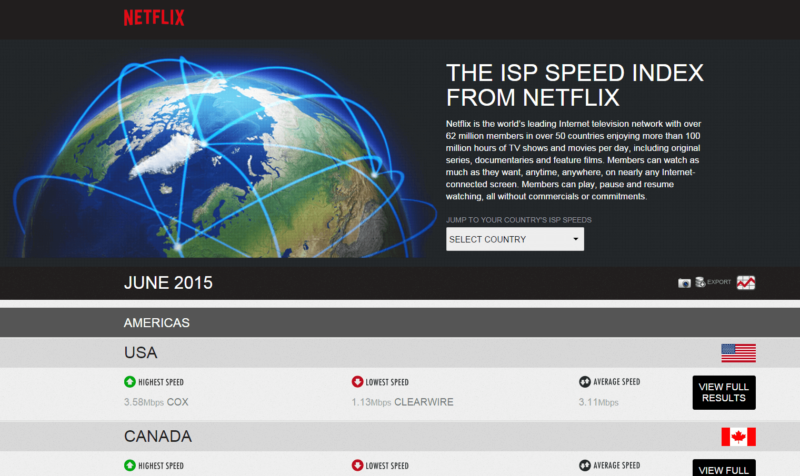
The tool features ISP speed rankings and average speed for a variety of countries, with data updated monthly. Netflix is providing a pretty incredible free tool, so you’d expect this page to have a vast amount of backlinks, especially given Netflix’s involvement in the debate over net neutrality.
If you plug the ISP Speed Index page into Majestic, you get the following data:
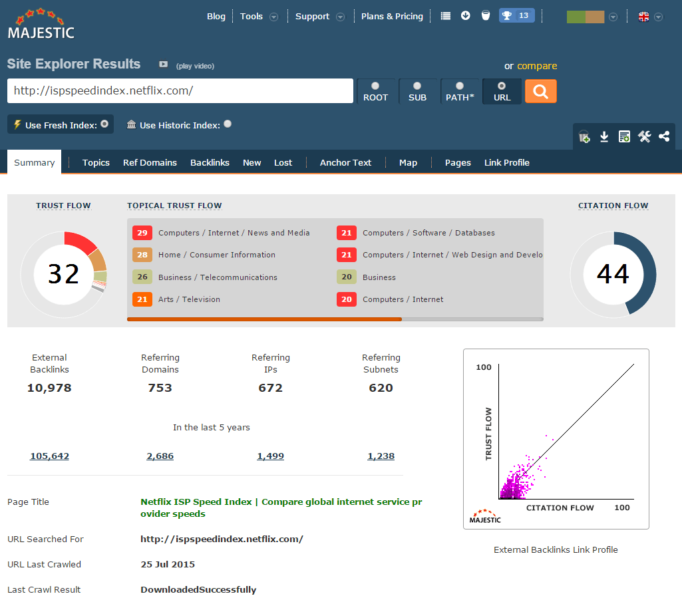
Looking at the data, you’ll see the page only has 753 Referring Domains:

Now, 753 domains may seem like a fair number. But when you compare this number to that of a similar page, you can see it’s actually quite meager, particularly given Netflix’s audience and overall visibility.
For example, Ookla’s Net Index offers similar data. Here is what you get when you input the Net Index into Majestic:
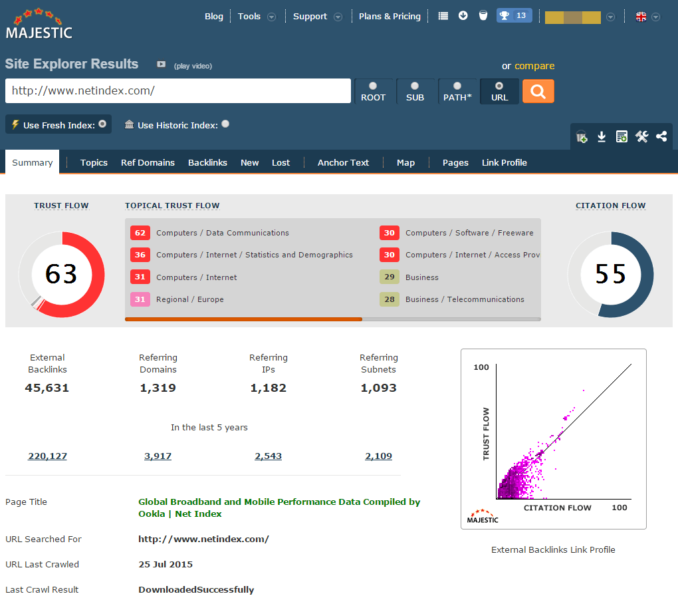
Ookla’s Net Index has just under double the number of backlinks Netflix’s ISP Speed Index has. (Note: To be fair, Ookla’s primary focus is broadband testing, and their index has been around much longer than Netflix’s.)

The Netflix ISP Speed Index is great, but it’s underperforming in terms of links and visibility. (I didn’t even know it existed prior to writing this post.) If Netflix started thinking strategically about links, they could build their way up to the same level as Ookla. There’s no reason a brand as large and visible as Netflix shouldn’t be raking in links for such a useful tool, especially considering all the exposure that has come from the net neutrality debate.
Netflix has already done the hard part and created an excellent tool; now it’s just time for some intelligent promotion to acquire the links that tool deserves.
Example #2: Best Buy Canada
Another great example of why you can’t ignore links involves Best Buy Canada.
Best Buy runs a number of PR campaigns, and one of their best campaigns is the Best Buy for Kids program. The Best Buy for Kids initiative aims to strengthen local communities by empowering their youth.
Best Buy makes a number of charitable donations through this program, and it rightfully garners a decent amount of media coverage. Through this coverage, Best Buy is able to build reputation and brand awareness via online mentions.
However, the company is missing out on precious link equity every time it is mentioned but not linked. Here are some examples.
Back in 2009, Best Buy partnered with the Vancouver Canucks to give back to the local community, and the event was covered on the Canucks’ website. You can see that the Best Buy for Kids program was mentioned by name:

Around the time this post was published, Best Buy could easily have reached out to this webmaster and probably turned that mention into a link. In fact, they could still contact the Canucks today and likely get it changed, as the Best Buy for Kids program continues to be active, and the link would still be relevant.
This unlinked mention on the Canucks’ website isn’t the only opportunity that was missed. Here is a mention on a local news site:
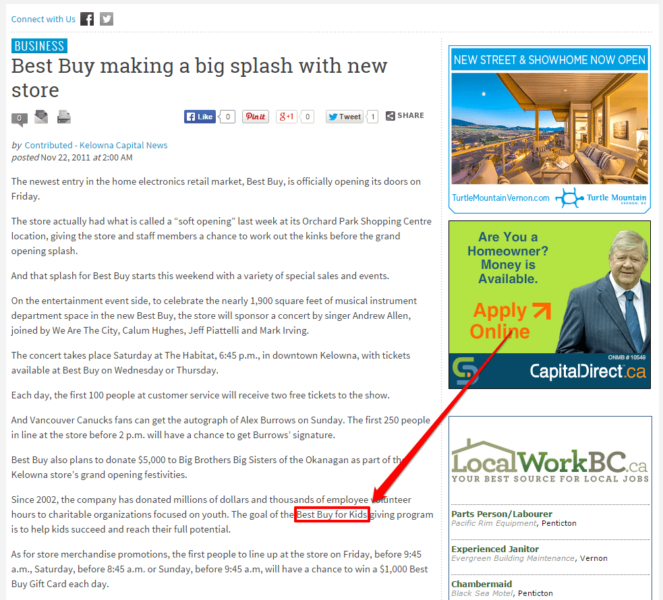
This type of media coverage always presents wonderful link opportunities and demonstrates how link-building and PR can work effectively together. In this instance, Best Buy is nailing the PR portion of their digital marketing, but they aren’t securing all the links they deserve.
Example #3: Sephora
Finally, Sephora offers another perfect example of why you can’t ignore links.
Perusing Sephora’s website, you can see they have a “HOW TOs” section.
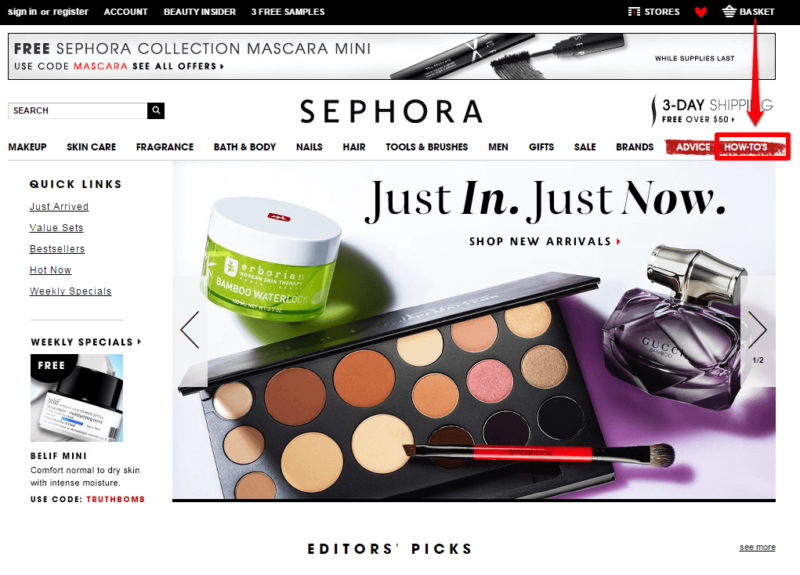
Hovering over the “HOW TOs” link activates a drop-down menu, where we can access “Sephora TV.”
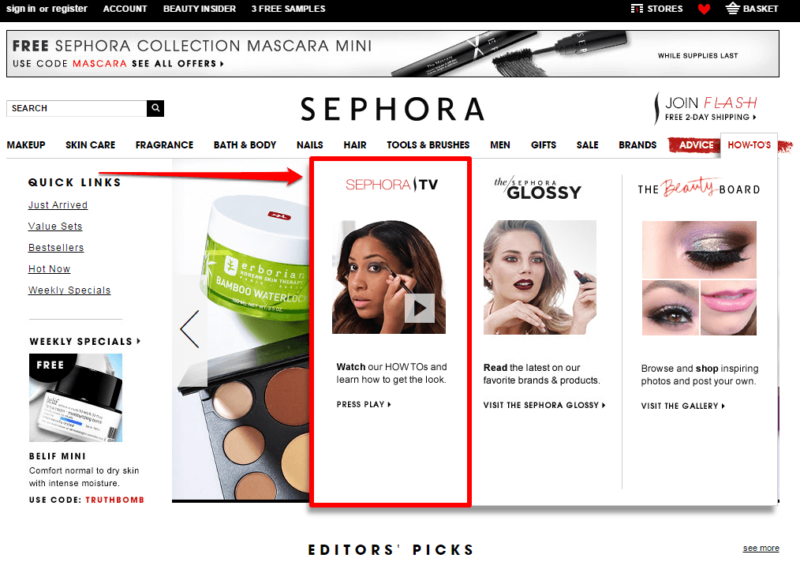
Here is what the page for Sephora TV looks like:

You can see the page offers a plethora of instructional videos with high production value. Producing these videos likely requires a substantial investment, and thus Sephora TV should attract a large number of links, traffic and visibility for Sephora.
However, plugging the Sephora TV URL into Majestic shows a rather paltry number of domains linking to the page:
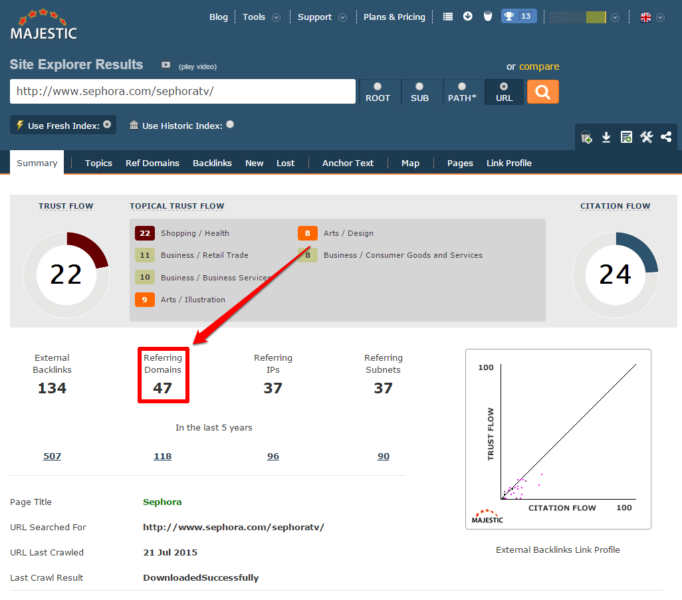
It’s very surprising to see such a low number of referring domains, because Sephora is a strong brand, and the content is very good. A link to these videos would be a beneficial addition to virtually any fashion blog.
However, Sephora needs to clean up some on-site issues and make this page more linkable. The page’s title tag could be reworked, and each video should include a transcript, which would it make it easier for search engines to crawl the pages.
The site does a good job of including internal links to the products featured in the videos, but all these links have the same anchor text: “Shop Now.” Sephora could optimize these internal links by changing the anchors to the specific names of the products they link to, which in turn would also make the site more user-friendly.
Considering how much Sephora has invested in delivering such useful content, they need to make sure they are getting as much ROI from that content as possible. But judging from the Majestic data, it seems they have disregarded links, or at least not actively pursued them.
If Sephora cleans up these on-site issues and makes the page more linkable, it shouldn’t be too difficult for them to grow the number of domains linking to Sephora TV.
Conclusion
You can’t ignore links.
Links are foundational to the Web, and they’re simply too important to overlook within your digital marketing. If you don’t account for links, it diminishes the other marketing tactics you’re implementing.
Start by optimizing your internal linking structure, and move on to external link acquisition. Some links can come serendipitously, but without strategic promotion, you will never get all the links you should.
Some opinions expressed in this article may be those of a guest author and not necessarily Search Engine Land. Staff authors are listed here.
About The Author

Andrew Dennis is a Content Marketing Specialist at Page One Power and a Staff Writer for Linkarati. As a Staff Writer at Linkarati Andrew gets to explore the ever-changing and exciting world of SEO on a daily basis. When he’s not writing about link building and SEO, you’ll find him attending and/or watching live sporting events. Andrew remains confident that he will see a Detroit Lions Super Bowl victory before he dies.



Thankyou for all your efforts that you have put in this. Very interesting information. I like this site very much so much superb information.